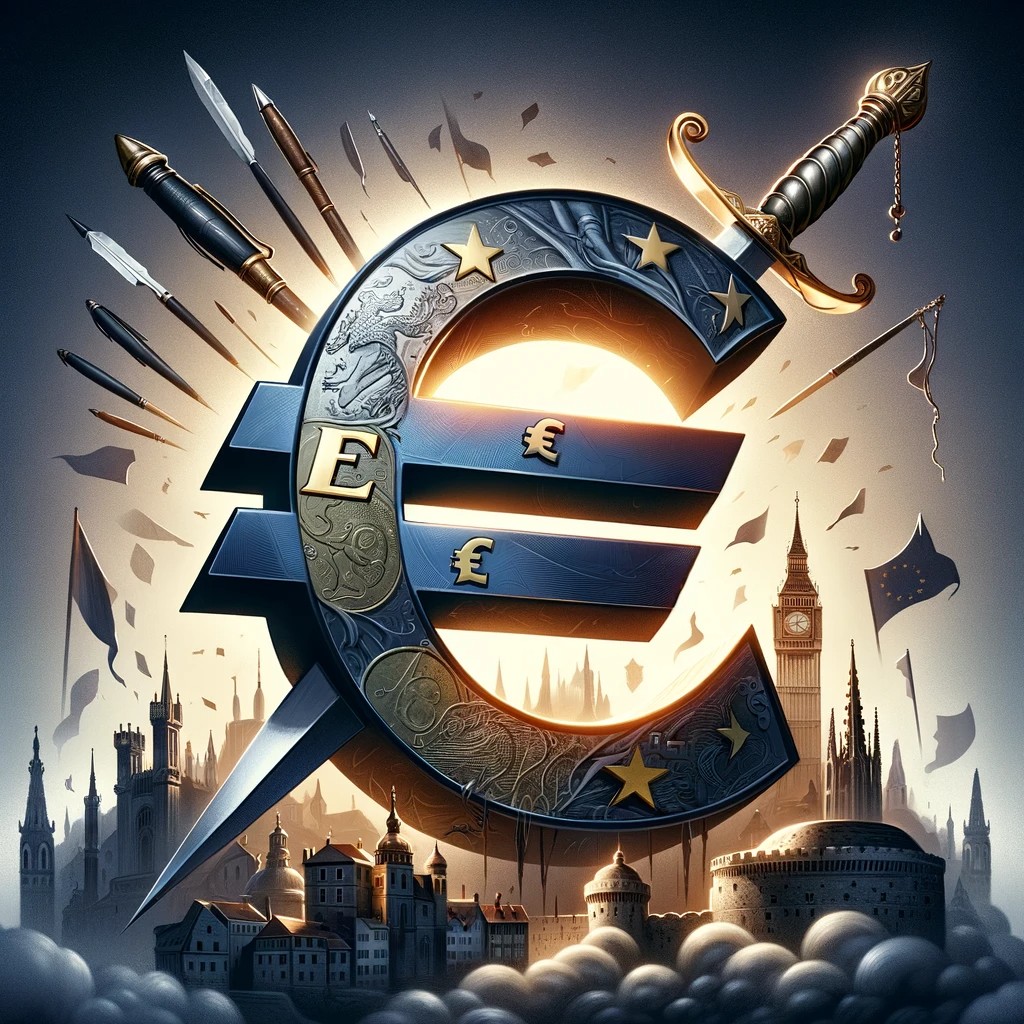The recent rumblings within the European Central Bank (ECB) signal a growing concern that the Euro, Europe’s flagship currency, might be edging towards becoming a political pawn amidst the escalating geopolitical tensions. With the European Union (EU) eyeing the hefty reserves of frozen Russian assets, a debate rages on the implications of such a move, not just for the EU, but for the very fabric of global financial stability.
The Fine Line Between Sanction and Weaponization
At the heart of this debate is the notion of ‘weaponizing’ the Euro by leveraging it as a tool in the broader geopolitical chess game, a strategy that is not without its critics within the ECB itself. The idea of confiscating Russian state assets, including central bank reserves, to aid Ukraine’s reconstruction has sparked a contentious dialogue. ECB policymaker and Bank of Italy Governor, Fabio Panetta, has voiced concerns, suggesting that weaponizing the Euro could ultimately backfire, making it less attractive and prompting the search for alternative currencies.
The apprehension extends beyond mere retaliation from Russia. There is a palpable fear that such aggressive financial strategies could erode global confidence in European assets, potentially destabilizing the Euro and inflating borrowing costs for member states. The ECB’s delicate dance around these issues reflects a broader existential question about the role of national currencies in international politics and the unforeseen consequences that might ensue.
Euro in the Crosshairs: Economic Strategy and Global Implications
The broader implications for the Euro and the European financial system cannot be overstated. The EU, alongside allies like the United States, Japan, and Canada, froze a staggering $300 billion of Russian central bank assets in response to the invasion of Ukraine. A significant portion of this, around $200 billion, resides within Europe, mainly housed in the Belgian clearinghouse Euroclear.
The crux of the matter lies in the potential fallout from seizing these assets. Critics argue that such a move could trigger a domino effect, with international investors pulling out their funds en masse, wary of their investments’ security. This mass exodus could weaken the Euro and elevate yields, further complicating the EU’s economic landscape.
Moreover, the conflict has inadvertently bolstered the position of the Chinese renminbi, as Russia’s shift towards the Chinese currency for trade underscores a broader trend of de-dollarization and the search for USD alternatives. This shift not only challenges the Euro’s global standing but also highlights the strategic moves by countries like China to promote their currencies on the world stage.
In response to these challenges, Panetta advocates for a strengthening of the Euro through strategic enhancements aimed at bolstering its role as a global reserve currency. These include the development of a robust, safe asset for the Eurozone, the completion of a banking union to facilitate cross-border banking, and the advancement of payment and market infrastructure across the bloc. Such measures are deemed essential for the Euro to hold its ground in the rapidly evolving global financial arena.
As the debate rages on, the ECB’s stance on interest rates adds another layer to the unfolding economic drama. With the bank holding rates steady amid shifting inflation outlooks, the market’s reaction has been to ramp up bets on impending rate cuts. This complex interplay of monetary policy, geopolitical strategy, and economic stability underscores the precarious position the Euro finds itself in as Europe navigates these tumultuous times.
In sum, the Euro stands at a critical juncture, caught between its established role as a stable currency and the potential for becoming a tool in geopolitical strategies. The decisions made by European leaders and financial policymakers in the coming months will not only shape the future of the Euro but also set the tone for the balance of economic power in the international arena.





